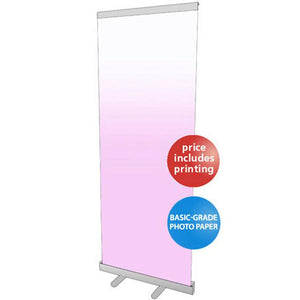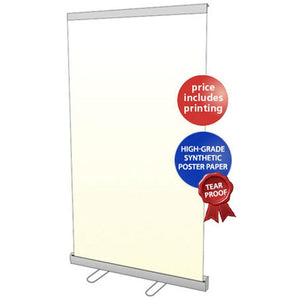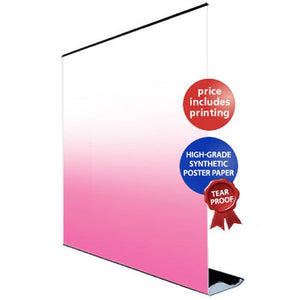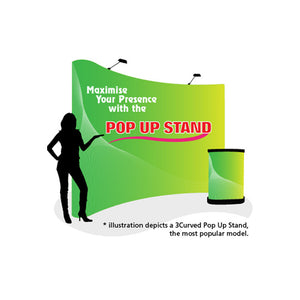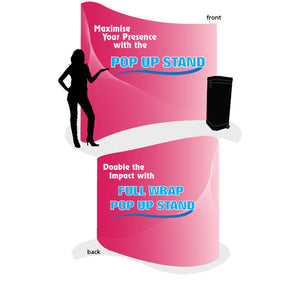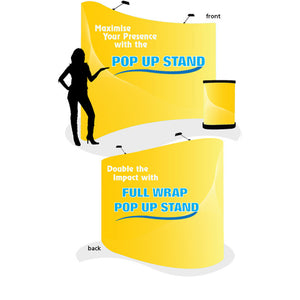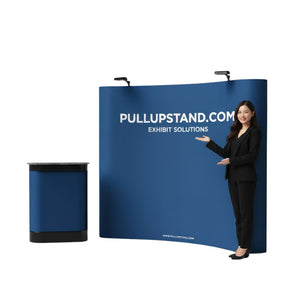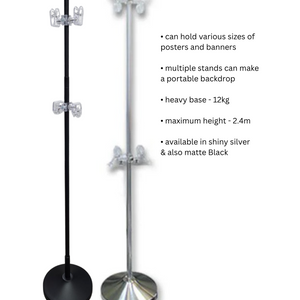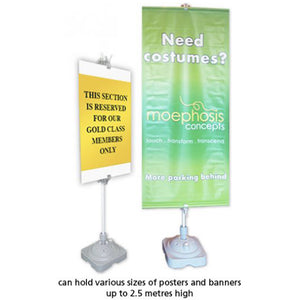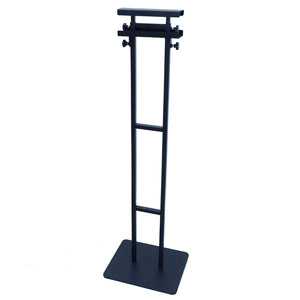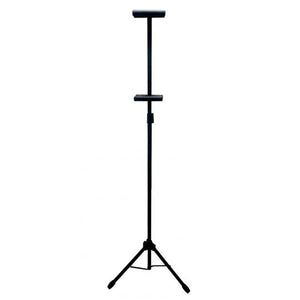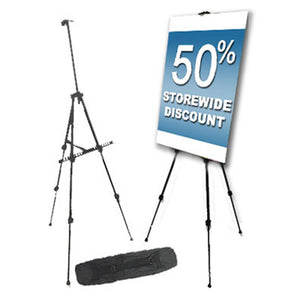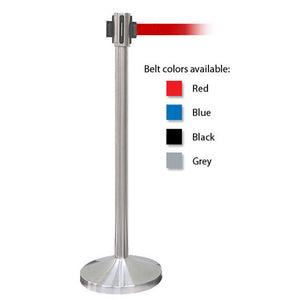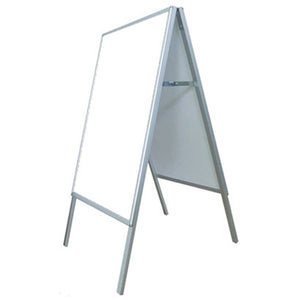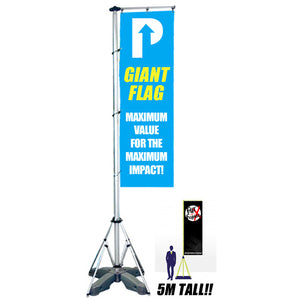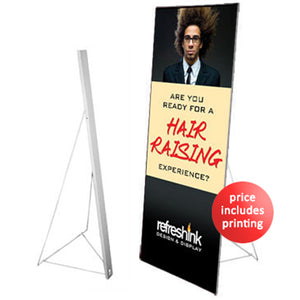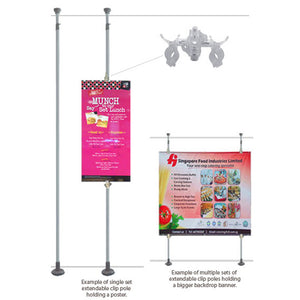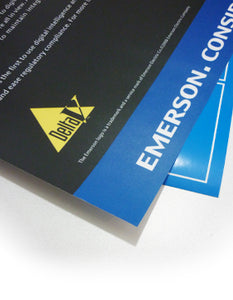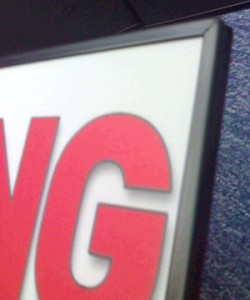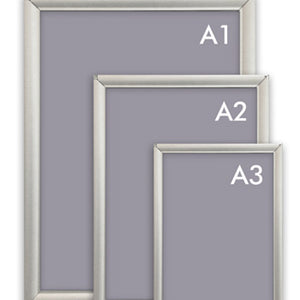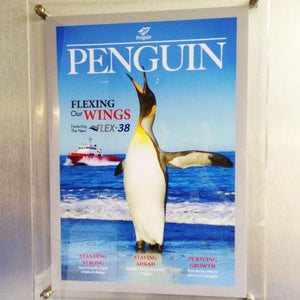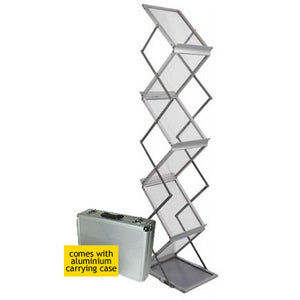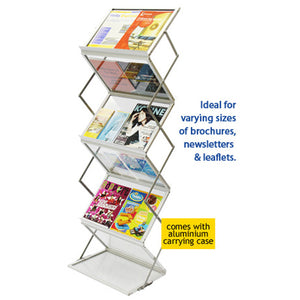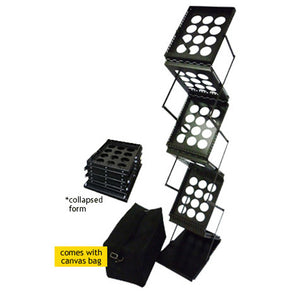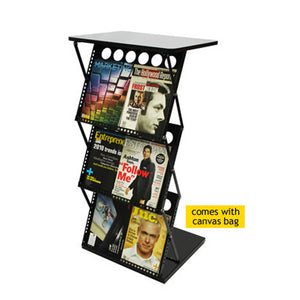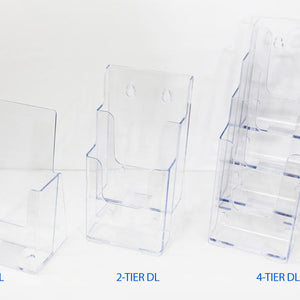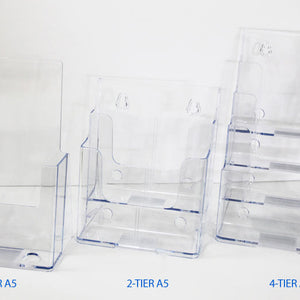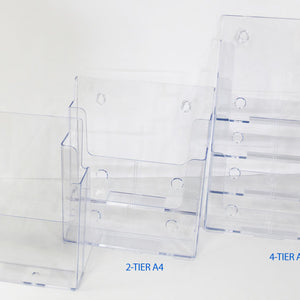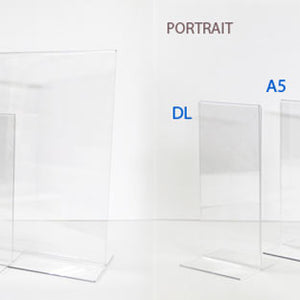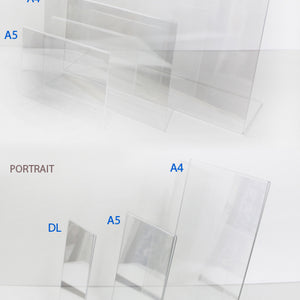Why Early Planning Makes or Breaks Your Exhibition Success
Planning to showcase at the Singapore Packaging Exhibition 2025? Then you absolutely need a rock-solid logistics strategy. Sadly, most exhibitors focus solely on booth design while completely ignoring shipping needs. As a result, they consequently face stress, delays, and shocking last-minute costs.
The truth is simple: early logistics planning can mean the difference between success and failure. In fact, exhibitors who start planning 3-4 months ahead typically save 30-50% on shipping costs. Furthermore, they report much lower stress levels throughout the exhibition process.
Located near Changi Airport, Singapore EXPO offers unique challenges compared to other venues like Suntec Singapore. Therefore, mastering these shipping hacks becomes essential for any serious exhibitor.
Additionally, did you know that purchasing exhibition materials directly from Pullupstand Singapore instead of shipping your existing materials can save you up to 60% on logistics costs? Moreover, they offer convenient storage services for future exhibitions in Singapore!
Let's dive into five proven early-bird shipping tricks that will transform your exhibition experience. 

Hack #1: Master the Art of Backward Planning
Ever wondered how to ship booth materials to Singapore Packaging Exhibition without last-minute panic? The secret lies in backward planning – starting with the exhibition date and working backward.
Why Backward Planning Works
Traditional planning often fails for exhibitions. However, backward planning ensures you never miss critical deadlines because:
- It accounts for all venue deadlines
- It builds in necessary buffer time for customs clearance
- It lets you choose cost-effective shipping options
This approach is especially important for events in Hall 6 of Singapore EXPO, which has specific loading procedures.
Alternatively, you could completely avoid shipping headaches by purchasing high-quality pull-up banners and pop-up stands directly from PullUpStand Singapore. Additionally, they offer storage services between exhibitions, thus eliminating international shipping costs entirely for your next Singapore event!
Your 12-Week Backward Planning Timeline
12 Weeks Before:
- Review the Exhibitor Services Manual
- Select an exhibition freight forwarder
- Estimate shipment volume and weight
- Choose transportation method (air vs. sea)
8-10 Weeks Before:
- Finalize freight forwarder booking
- Determine customs strategy
- Begin packaging design
- Order your pull-up banners early from PullUpStand (consequently saving up to 60% compared to shipping costs!)
6-8 Weeks Before:
- Complete documentation
- Meet sea freight booking deadlines
- Arrange cargo insurance
4-6 Weeks Before:
- Meet sea freight arrival deadlines
- Process TIS bond or ATA Carnet
2-4 Weeks Before:
- Meet air freight arrival deadlines
- Complete customs clearance
- Schedule loading dock access
1 Week Before:
- Confirm on-site delivery schedule
- Prepare return shipping documentation
- Brief booth staff on procedures
Case Study: The 45% Cost Savings
Eco-Pack GmbH, a German packaging machinery manufacturer, saved 45% on logistics costs by implementing backward planning for their shipment. By identifying an early bird shipping deadline for Singapore Packaging Exhibition three months out, they:
- Chose sea freight LCL instead of rushed air freight
- Avoided a 30% late arrival surcharge
- Saved approximately SGD 3,500 in total
KEY TAKEAWAY: Start backward planning at least 3 months before the exhibition. This approach ensures you never miss critical deadlines, can choose cheaper shipping options, and avoid costly surcharges that often exceed 30-50% of base rates.
Hack #2: Leverage Strategic Cargo Consolidation
Shipping a partial container? Understanding Singapore Packaging Exhibition cargo consolidation tips can dramatically cut your costs.
Understanding Consolidation Options
Cargo consolidation combines shipments from multiple exhibitors into shared containers. The three main options are:
- Less than Container Load (LCL): Multiple shippers sharing one container
- Groupage: Similar to LCL, common in European shipping
- Shared Container Load (SCL): A newer option for mid-sized shipments
When Consolidation Makes Financial Sense
| Shipment Volume | Best Option | Why It Works |
|---|---|---|
| 1-15 CBM | LCL/Groupage | Pay only for space used; avoid FCL minimums |
| 15-50 CBM | SCL or LCL | Sweet spot for newer SCL services |
| 50+ CBM | FCL | Cost-effective at container capacity |
Hidden Cost Savings: The ON-SITE Handling Factor
Here's what many exhibitors miss: On-site handling charges often have high minimums for Full Container Load shipments. For example:
- FCL On-Site Handling: SGD 100 per CBM, minimum 22 CBM for a 20' container
- LCL On-Site Handling: Charged per actual CBM with lower minimums
For a small 5 CBM shipment including your pop-up stand, this creates a huge difference:
- LCL Handling: 5 CBM × SGD 100 = SGD 500
- FCL Handling: Minimum 22 CBM × SGD 100 = SGD 2,200
However, the most cost-effective option is therefore to purchase your pop-up stands directly from PullUpStand Singapore. Furthermore, you can store these materials with them for your next exhibition, thus avoiding shipping costs entirely!
KEY TAKEAWAY: For shipments under 15 CBM, LCL/groupage typically cuts costs by 30-60% compared to FCL, especially when considering on-site handling minimums. Nevertheless, purchasing locally from PullUpStand and using their storage services between exhibitions is often the most economical solution. Alternatively, book consolidation services 2-3 weeks earlier than standard deadlines.
Hack #3: Revolutionize Your Packing for Weight & Cost Savings
Your choice of packaging directly impacts shipping costs through both actual weight and dimensional weight calculations. Using eco-friendly packaging solutions for Singapore Packaging Exhibition shipping helps both the planet and your budget.
Understanding Dimensional Weight Impact
Carriers don't just charge by actual weight—they use dimensional (DIM) weight, especially for air freight:
DIM Weight (kg) = Length (cm) × Width (cm) × Height (cm) ÷ DIM Factor
Common DIM factors are 5000 or 6000 for international shipments. The billable weight is whichever is greater: actual weight or DIM weight.
Case Example: The Power of Packaging Optimization
Consider a display panel shipment with pull-up stands:
Original Packaging: 60cm × 50cm × 40cm = 120,000 cubic cm
- Actual weight: 10kg
- DIM weight: 120,000 ÷ 5000 = 24kg
- Billable weight: 24kg
Optimized Packaging: 50cm × 40cm × 30cm = 60,000 cubic cm
- Actual weight: 10kg
- DIM weight: 60,000 ÷ 5000 = 12kg
- Billable weight: 12kg
That's a 50% reduction in billable weight just by optimizing packaging!
Sustainable Materials That Reduce Weight and Cost
The Singapore EXPO emphasizes sustainability. Save money while being eco-friendly with these materials:
- Corrugated Cardboard: Versatile and recyclable
- Honeycomb Cardboard: Excellent alternative to bubble wrap
- Paper-Based Wraps: Like kraft paper or specialized wraps
- Molded Pulp: Custom protection from recycled paper
KEY TAKEAWAY: Optimizing packaging can slash billable weight by up to 50%, especially for air freight. Eco-friendly materials offer dual benefits: they're lighter (reducing actual weight) and allow more compact packing (reducing dimensional weight).
Hack #4: Master the Art of Forwarder Selection & Negotiation
Finding the best freight forwarders for Singapore Packaging Exhibition 2025 isn't just about getting the lowest quote. You need the right partner who understands exhibition logistics.
Why Exhibition Specialists Outperform General Freight Forwarders
Exhibition logistics differs substantially from regular shipping due to:
- Extremely tight, non-negotiable deadlines
- Complex venue protocols and exclusive handling rights
- Specialized temporary import procedures
- Multiple handling stages with valuable display materials
The Complete RFQ Checklist for Smart Selection
Experience & References:
- How many exhibitions have you handled at Singapore EXPO?
- Can you provide references from similar events?
Scope of Services:
- Do you offer door-to-booth services?
- What specific on-site services do you provide?
Pricing & Charges:
- Provide a fully itemized quote detailing ALL costs
- What are your customs clearance, TIS bond fees?
- What are the on-site handling rates?
- What potential surcharges might apply?
According to a logistics specialist at Kuehne+Nagel: "The base freight rate typically represents only about 40-60% of the total door-to-booth cost for exhibition shipments to Singapore."
KEY TAKEAWAY: Select forwarders with proven exhibition experience at Singapore EXPO. Request fully itemized quotes that include ALL charges from door-to-booth. Focus negotiation on the total service package, not just the base freight rate.
Hack #5: Optimize Your On-Site Logistics Experience
Understanding on-site loading dock fees at Singapore Expo venue and handling procedures ensures a smooth exhibition experience.
The Critical Role of the Official Freight Forwarder (OFF)
At Singapore EXPO, an Official Freight Forwarder (OFF) is appointed for each exhibition with exclusive rights for:
- Material handling (loading dock to booth)
- Operation of forklifts and cranes
- Storage and return of empty packaging
You must engage with the OFF for these services, even if using a different company for international shipping.
Navigating Loading Dock Access & Restrictions
Access to Singapore EXPO loading docks is tightly controlled:
- Large vehicles require pre-scheduled time slots
- Height restrictions apply (typically around 4 meters)
- Operating hours are strictly defined (often 8:00 am – 10:00 pm)
- Work outside standard hours incurs overtime surcharges
Booking Essential On-Site Services in Advance
These services must be pre-booked through official forms:
- Material Handling: Unloading, transport to booth, empty storage
- Equipment Rental: Forklifts, pallet jacks, operators
- Labor Assistance: Help with unpacking and positioning
- Empty Storage: Secure storage during the show
Late booking often incurs a 30-50% surcharge. According to past Singapore EXPO events, a 50% surcharge for on-site orders is standard.
KEY TAKEAWAY: Book all on-site services through the official forms at least 4-6 weeks before the event to avoid 30-50% late surcharges. Always coordinate with the appointed OFF, even if using a different international shipper.
Bonus Tips: Mastering the Customs and Insurance Game
Navigating Singapore's Temporary Import Options
For exhibitors bringing materials temporarily into Singapore, two main options exist:
-
Temporary Import Scheme (TIS):
- Allows GST/duty suspension for up to 6 months
- Requires security/bond (often provided by forwarder)
- TIS bond fees typically cost 0.50% of CIF value (minimum SGD 100)
-
ATA Carnet:
- International "passport for goods" from your local Chamber of Commerce
- Simplifies customs procedures
- Useful for multi-country exhibition tours
For temporary import permit for exhibition goods Singapore, the choice depends on your situation:
- Use TIS when: You're only exhibiting in Singapore
- Use ATA Carnet when: You're touring multiple countries
Insurance Strategies Beyond Basic Coverage
Exhibition shipments require specialized coverage:
- Seek "Booth-to-Booth" Coverage: Ensure policy covers not just transit but also on-site phases
- Calculate Insured Value Correctly: Commercial Invoice Value + Freight Cost + 10-15% Uplift
- Secure Commercial General Liability: Most venues require exhibitors to carry liability insurance
FAQ: Your Top Questions Answered
Q: What are the typical early bird shipping deadlines for Singapore Packaging Exhibition?
A: Based on similar exhibitions at Singapore EXPO:
- Sea Freight: 4-6 weeks before show opening
- Air Freight: 2-3 weeks before show opening
- Documentation: 1-2 weeks before freight arrival
Q: How do I compare air vs sea freight for exhibition booths?
A: Consider these factors:
- Timeline: Sea freight requires 4-6 weeks; air freight 1-2 weeks
- Cost: Sea freight is typically 40-60% cheaper for volume shipments
- Size/Weight: For small items like pull-up banners, air can be competitive
Q: What are customs bond procedures for Singapore Packaging Exhibition?
A: For temporary imports, you'll need either:
- A TIS bond (typically 0.50% of shipment value)
- An ATA Carnet arranged through your local Chamber of Commerce
Conclusion: Your Roadmap to Exhibition Shipping Success
Early planning certainly makes the difference between exhibition shipping success and costly chaos. By implementing these five hacks, you'll cut costs by 30-50% and dramatically lower stress levels.
Remember that the Singapore Packaging Exhibition 2025 presents both challenges and opportunities. Therefore, the key lies in treating logistics not as an afterthought but as a critical component of your exhibition strategy.
Ready for a Successful Exhibition?
For exhibitors looking to maximize impact while minimizing logistics headaches, quality display materials from Pullupstand.com can make a significant difference – not just in visual appeal but also in shipping efficiency due to their lightweight, portable designs.
The Ultimate Cost-Saving Solution
Instead of shipping your materials internationally, you can consequently save up to 60% by purchasing high-quality exhibition materials directly from PullUpStand Singapore. Additionally, they offer convenient storage services between exhibitions, thus eliminating future shipping costs entirely!
Furthermore, their pull-up banners, pop-up displays, and brochure stands are specifically designed for easy transport and setup, so you'll save on labor costs as well.
Download our free Expo Shipping Planner template to start organizing your exhibition logistics today! Alternatively, contact PullUpStand Singapore for a hassle-free exhibition solution!





















































